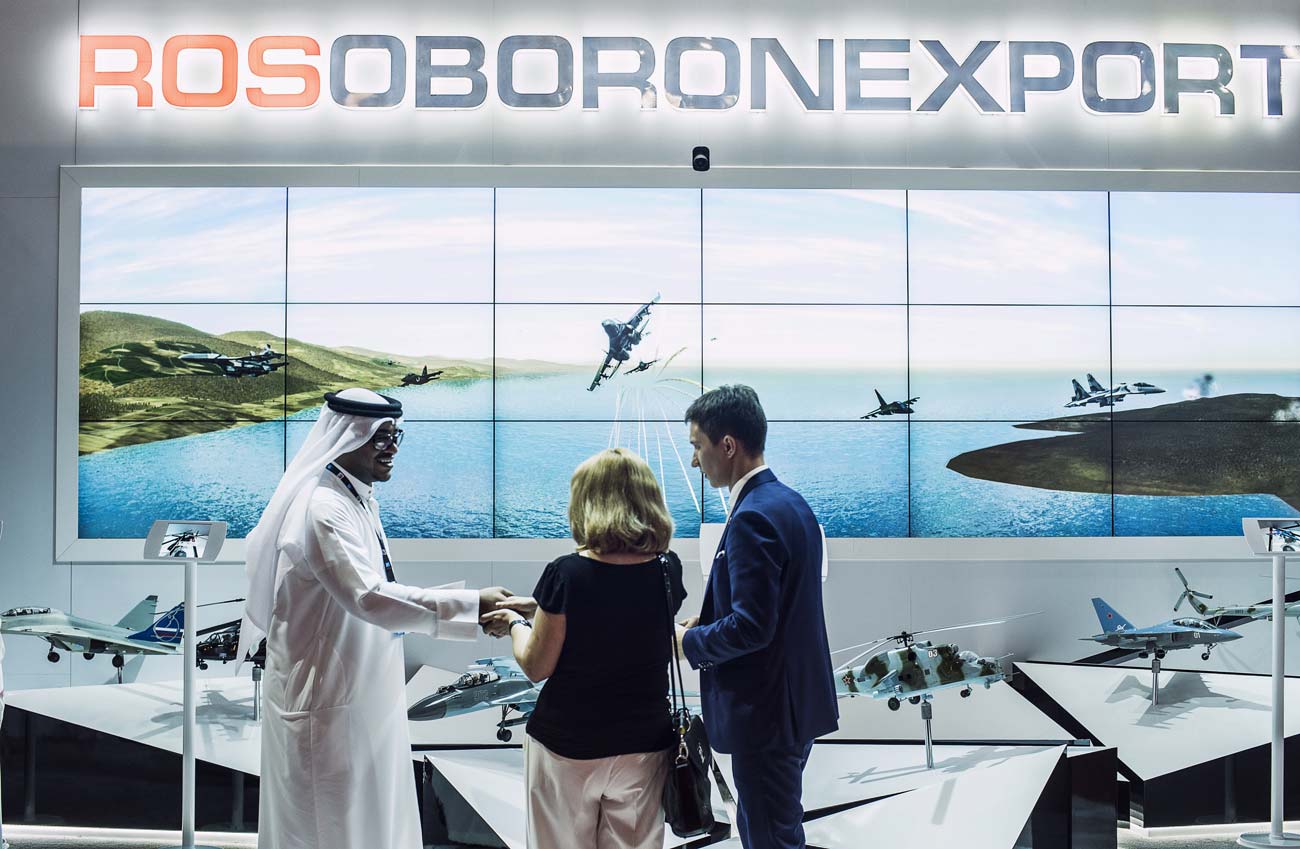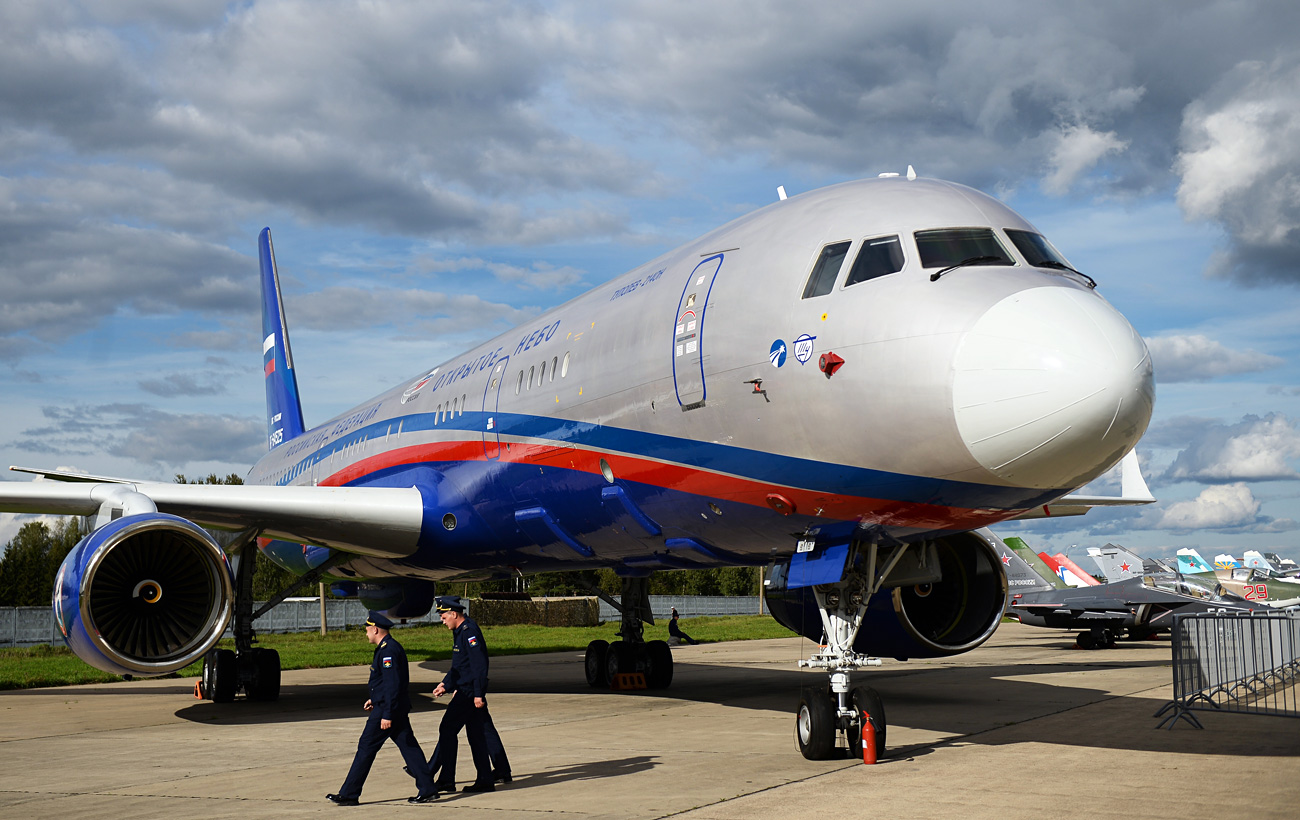U.S. Congress places Russia third in global arms trade

The Rosoboronexport stand at the Dubai Airshow international exhibition.
Evgeny Biyatov / RIA NovostiThe U.S. Congress has named the 2015 leaders in the global arms trade: in first place is the U.S., which sold $40 billion worth of weapons; in second place is France, with total sales of $15 billion. Both countries had increased their sales from the previous year, by $4 and $9 billion, respectively. The information was provided by the New York Times on Dec. 26, citing a congressional study.
U.S. congressional analysts placed Russia third in the ranking. According to them, the country sold arms for a total of $11.1 billion in 2015, which is $100 million less than in 2014. However, the U.S. calculations contradict the figures that Russian President Vladimir Putin presented in the beginning of the year. In March 2016, during a session of the Commission on Military Technical Cooperation with Foreign States, Putin said that Russia's military exports in 2015 amounted to $14.5 billion, "exceeding all expectations."
The contradictions between the U.S. calculations and those of the Kremlin can be explained by the large quantity of secret deals, says military expert and editor-in-chief of Fatherland Arsenal magazine Victor Murakhovsky. "A series of Russian supplies is classified as 'top secret' and is not divulged to the whole world. Nevertheless, Rosoboronexport and the Russian Center for Strategy and Technology Analysis present a detailed account of weapons sales to the presidential administration. That is why our credibility is higher," explained Murakhovsky.
In his words, France indeed made some successful export deals that year concerning supplies of submarines and planes. "Their position improved in the export ranking but I don't think that they surpassed Russia," added the analyst.
It is difficult to assess the annual performance of arms contracts as terms of delivery of complex products may stretch for more than a year, says Vladimir Yevseyev, Deputy Director of the Institute of CIS countries. "So, for example, the Stockholm International Peace Research Institute (SIPRI) for the analysis of trends in global arms exports selected period of five years", - explains Yevseyev.
"Arms market is extremely politicized," - adds Yevseyev. According to him, the US Congress' rating may be politically motivated, given the high level of Russian-American confrontation with the outgoing President Barack Obama.
Read more: Russia to rescue Serbia's military aviation
Subscribe to get the hand picked best stories every week
All rights reserved by Rossiyskaya Gazeta.
Subscribe
to our newsletter!
Get the week's best stories straight to your inbox
